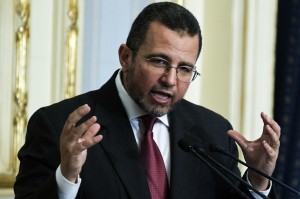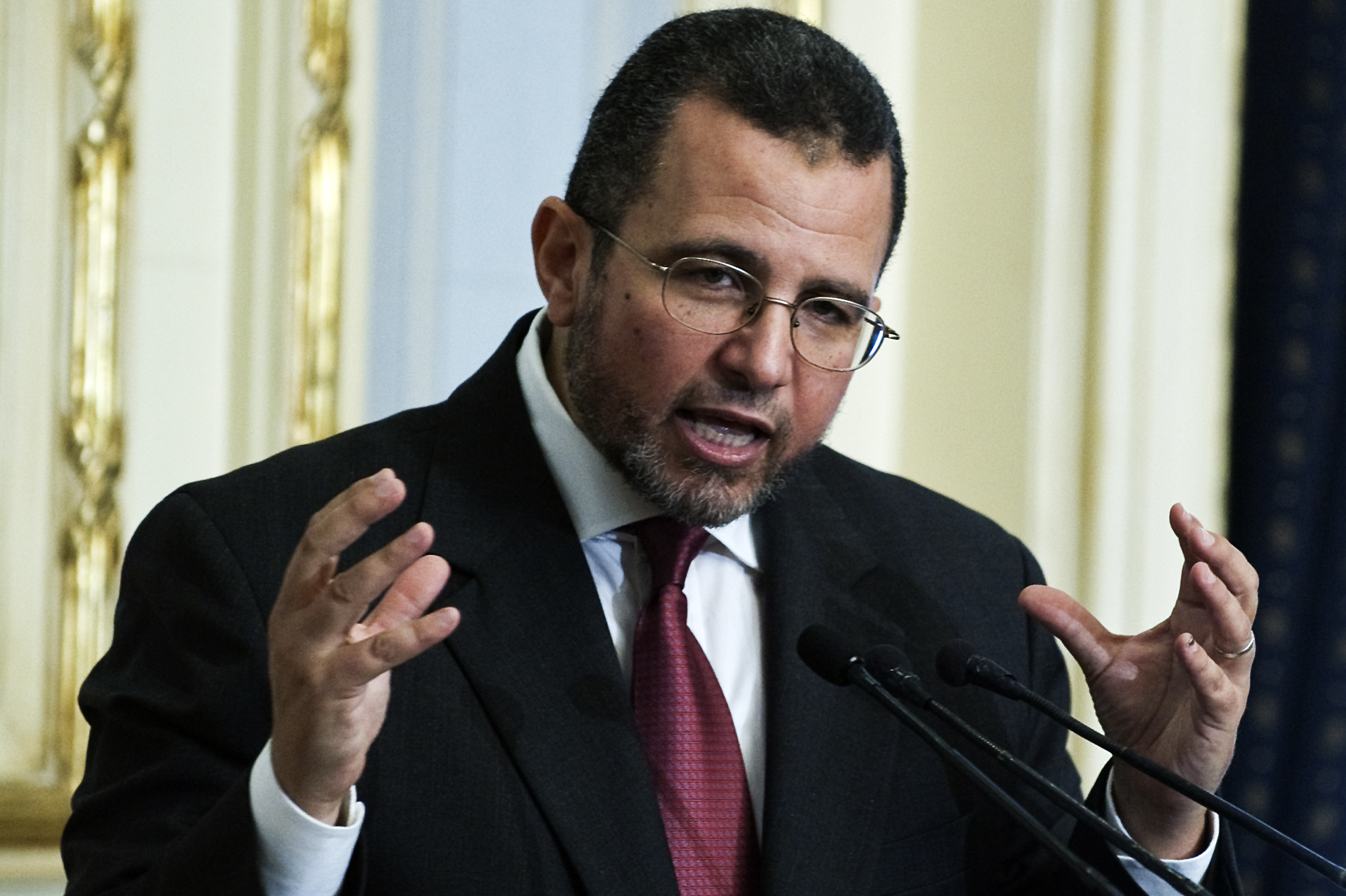
This article is part three of a series that examines the composition of the Qandil cabinet with a close look at allegiances and alliances within.
In addition to Field Marshal Hussein Tantawi, Prime Minister Hesham Qandil’s cabinet includes eight more ministers who retain their posts from former Prime Minister Kamal El-Ganzouri’s cabinet, demonstrating a preference for stability over change.
The high profile foreign and finance portfolios have been retained by El-Ganzouri’s Foreign Minister Mohamed Kamel Amr and Finance Minister Momtaz El-Said.
Amr was initially hired by former Prime Minister Essam Sharaf as part of a cabinet reshuffle and has now survived three successive governments. He is not at all politician, rather a career diplomat.
Amr had been out of the foreign service for almost fifteen years before Sharaf appointed him, a fact Sharaf cited as part of the reason he hired him, seeing it as an indication he was not connected to former President Hosni Mubarak’s regime.
He served as the Alternate Executive Director on the Executive Board of Directors of the World Bank from 1997 to 2009 and was the Egyptian ambassador to Saudi Arabia from 1995 to 1997. He was Deputy Foreign Minister for African affairs under former minister and presidential candidate Amr Moussa.
Amr’s slate is clean when it comes to connections to the former regime. However, he has been criticised for his handling of Syria (he talks about helping Syrian refugees in other countries but never mentions the ones in Egypt), although arguably as foreign minister he is answerable to the head of state. Overall, despite serving in the SCAF-appointed Sharaf and El-Ganzouri cabinets, Amr is not a bad choice.
Finance minister Momtaz El-Said is a similar case. A long-time bureaucrat at the ministry, El-Said was initially brought out of retirement to serve as deputy minister for former minister Hazem El-Biblawy in Sharaf’s cabinet.
Following El-Biblawy’s resignation after the sacking of the Sharaf cabinet, El-Said was promoted to finance minister. He is known for being very old fashioned and bureaucratic, handling the state budget more like an accountant than an economist.
He was part of the ministry under Mubarak, serving as head of the budget division under former minister Youssef Boutros-Ghali, a stalwart of the former regime. El-Said and Boutros-Ghali had strong differences however, with Boutros-Ghali attempting to persuade at least one private company to fire El-Said from an advisory role.
Regardless of not having ties to the former regime, El-Said is undoubtedly going to enact conservative fiscal policies. He refused to amend the 2011/2012 state budget when he was first appointed and has only increased spending by 8.8 percent in the 2012/2013 one, barely keeping up with inflation. El-Said seems set to focus on keeping a tight belt, meaning he is likely to find himself at odds with the revolutionaries who called for social justice as one of their main demands, as well as the labour force.
“After six months I discovered that the real crisis in Egypt is that people don’t like to work, they throw trash everywhere, and want money without working,” he told Daily News Egypt in an interview last week.
Minister of Insurance and Social Affairs Nagwa Khalil and Minister of Scientific Research Nadia Zakhary are two other El-Ganzoury cabinet holdovers. They are the only two women in the cabinet and Zakhary is the only Coptic Christian minister to the disdain of several women’s rights movements and the Church.
Before being appointed insurance minister, Khalil was the head of the National Centre for Social and Criminal Research. She was chosen in February 2011 as part of a fact finding committee tasked with determining who killed protesters in the uprising that toppled Mubarak from 25 January to 11 February.
The report concluded that security forces had used live ammo on protesters on 28 and 29 January and accused Mubarak’s sons Gamal and Alaa, as well as number of other prominent regime members like National Democratic Party Secretary General Safawat Al-Sharif of planning the attack known as the Camel Battle on 2 February.
The Minister of State for Military Production, Aly Sabry, is also a familiar face in Qandil’s cabinet, having served in this position in both El-Ganzouri and Sharaf’s cabinets. Sabry will be responsible for handling a large part of the military’s economic sector, supervising everything from the assembling of tanks to be sold to African countries all the way to pasta and cooking utensils.
The ministry of military production is a key part of the Egyptian military’s vast economic empire, which reportedly forms between 10 to 40 percent of the national economy. As such, this post and whoever fills it is very important to the Supreme Council of the Armed Forces (SCAF) and judging by Sabry’s retention it was SCAF that made the appointment rather than Qandil or Morsy.
Minister of Culture Saber Arab is another minister who served in El-Ganzouri’s cabinet and is a controversial decision in cultural circles. Arab was close to the Mubarak-era minister Farouk Hosny. Furthermore, he resigned his post from the cabinet only a month into his tenure so he could qualify for the State Award in Social Sciences – awarded by the culture ministry and not given to office holders – which he then won. His reappointment left many feeling like Arab was cheating the system as he got both the award and the office.
The final two members of the previous cabinet to keep their posts are Minister of State for Environment Affairs Mostafa Hussein and Minister of State for Antiquities Affairs Mohamed Ibrahim. Mostafa Hussein is the son of Hussein Kamel Bahaa El-Din who served as education minister under Mubarak. Prior to the ministry he was a professor at the faculty of science at Cairo University.
The fact that a quarter of the new cabinet, nine out of 35 ministers, are continuing from the El-Ganzouri cabinet which Morsy’s Freedom of Justice Party wanted to withdraw confidence from only months ago, signals that Morsy is making peace with the so called “deep state” and that he has no intention of squaring off against the former regime.
Prime Minister Qandil himself was the irrigation and water resources minister in El-Ganzouri’s cabinet. Morsy has even appointed El-Ganzouri as presidential advisor and granted him the Order of the Republic, a highly prestigious medal second only to the Order of the Nile.
The president will not fight the former regime. He, and by extension the Muslim Brotherhood, are in fact now allied with it.




